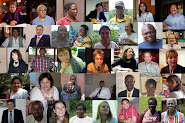 By Joel Wright
By Joel Wright The Center has been exploring at ways to develop young leaders. New research, by Jeffery Arnett at Clark University in Worchester, MA, indicates that there is greater potential for transformation in lives of the average twenty-something today.
Dr. Arnett is a pioneer in studying and proposing that there is a new developmental time of ones life occurring between adolescence and young adulthood. According to Arnett, in the past half century what most people experience between the ages of 18 – 29 has changed significantly in industrialized societies. One major change is with marriage and parenthood. In the past, most in this group would start this phase of their life in the early twenties but now it is being pushed off until the late twenties. Arnett claims that the period from the late teens through the mid twenties is now a time of self-focused exploration trying different possibilities with work and love. Some during this period even claim a “quarter-life crisis”.
Based on interviewing 300 “emerging adults,” Arnett describes the five key stages of Emerging Adulthood which distinguish it from the periods of Adolescence & Young Adulthood:
1.) Age of identity explorations – exploring love & work which helps them understand more about who they are and what they want out of life.
2.) Age of instability – because of the exploration, their life/work/love plan is constantly changing as new decisions and explorations reveal new insights.
3.) Self-focused age – with so many decisions occurring during this time, only the individual can truly decide what they want.
4.) Age of feeling in–between – a “gradual” change from adolescents to adulthood which can last between 7 – 10 years.
5.) Age of possibilities – high hopes and great expectations, a time of transformation
Aspects of these five areas were first noticed and classified as part of “Generation X”; however they are now becoming more mainstream with subsequent generations.
Age of Identity Explorations:
While typically identity formation is associated with beginning in adolescence, Emerging Adults are still exploring and are much closer to achieving their identity. During this period they are able to try out different ways of living and different options for love and work.
Age of Instability:
While Emerging Adults know they need a plan, it is often one constantly being revisited. Thus, this period can lead to anxiety about where to go and what to do for the next day, week, month or year. Some Emerging Adults will even look back on high-school years fondly because at least they knew where they were going and what they would be doing next. Moving, typifies this transient time period because with so many choices and changes occurring, each one could direct them to a new place to live and with new people.
Self-focused Age:
“There is no time of life that is more self-focused than Emerging Adulthood.” With so many choices occurring: what college, what major, what love, what occupation, when to come home, when to eat … the only one who truly knows these answers is the individual. This self-focus is healthy and Emerging Adults see it as necessary before they make big relationship commitments in work, love & life.
Age of Feeling In-Between:
When Emerging Adults were asked to describe this period the most used word was “gradual”. “Gradual” could be a great summary word for the key criteria that most regions in the U.S. and in most ethnic groups see as the three distinguishers of adulthood:
1.) Accept Responsibility for yourself
2.) Make Independent Decisions
3.) Become Financially Independent
All three of these take on a “gradual” and incremental process rather than all at once. Interestingly, when polled by Arnett, 60% of those from the age of 18 – mid twenties responded that they did not quite feel like adults yet.
Age of Possibilities:
Without having truly been tested by the “fires” of life or being tied down to certain networks, responsibilities and commitments, opportunity abounds. Since many of this group does not live at home, personal transformation is a huge part of this period. Their ability to depart from their past – whether positive or challenging – and the many choices and explorations that take place can be extremely formative. This period can last for about 7 – 10 years.
For more information on this topic visit Jeffrey Jensen Arnett’s website:
http://www.jeffreyarnett.com/
Or consider reading his new book, Emerging Adulthood: The Winding Road from the Late Teens through the Twenties.
Other resources:
http://www.parenthood.com/articles.html?article_id=9153
http://www.ssea.org/
http://www.s-r-a.org/easig.html



















No comments:
Post a Comment